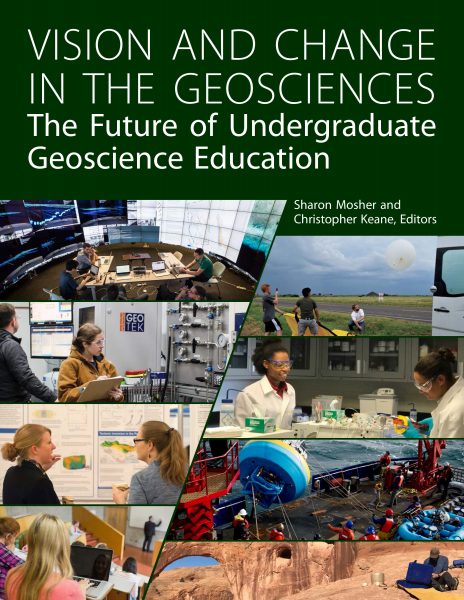The Future of Geosciences
October 29, 2021

As society grapples with big questions on climate, energy, the environment and natural resources, one thing is clear: The world needs geoscientists to help find answers.
A new report, spearheaded by the Jackson School of Geosciences and published by the American Geosciences Institute in March 2021, offers a guide for educating undergraduate geoscience students so they are prepared to tackle these questions and adapt to a rapidly changing field.
The report comes after six years of summits, workshops and surveys that collected input and feedback from more than 1,000 members of the geosciences community, both in academia and industry. The document presents a consensus view on the future needs and approaches for educating future geoscientists.
“In this report, the community has come together to address the critical roles academic institutions play in educating the next generation of diverse geoscientists to address societal challenges,” said Jackson School Professor Sharon Mosher, who stepped down as Jackson School dean in 2020 after more than a decade at the helm. “I hope this effort enables change in geoscience programs across the broad spectrum of institutions and will be useful to departments that may be facing challenges.”
Mosher is the report’s principal investigator and the driving force behind the project, hosting summits and workshops on the future of geoscience education. The 13-section report addresses the drivers, needs and strategies for preparing future generations of geoscientists. It covers a wide range of topics in key geoscience concepts, pedagogy and preparing students for future careers. It also confronts challenges in recruitment, increasing diversity and facilitating change in geoscience departments.
A core theme of the report is that the largest challenges facing society have geosciences at their root and that skills inherent to geosciences — such as working with complex systems; temporal and spatial reasoning; and the collection, interpretation and analysis of complex natural data — are among the most crucial approaches to addressing them.
The full text of the report and a free PDF version are available at www.americangeosciences.org/change.
Print copies can be purchased through Amazon.
Back to the Newsletter